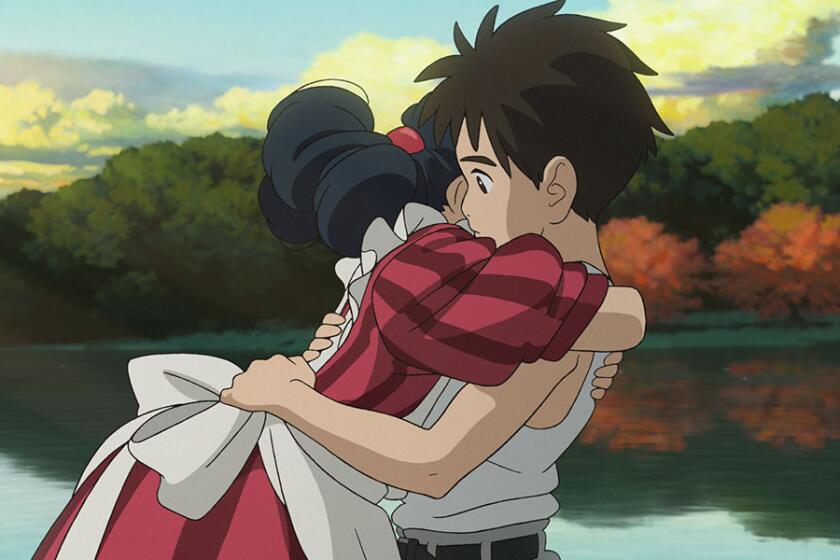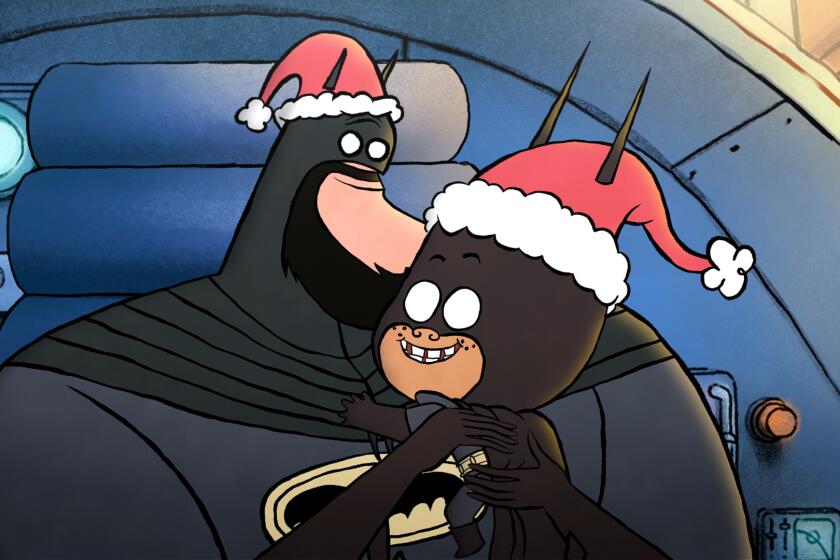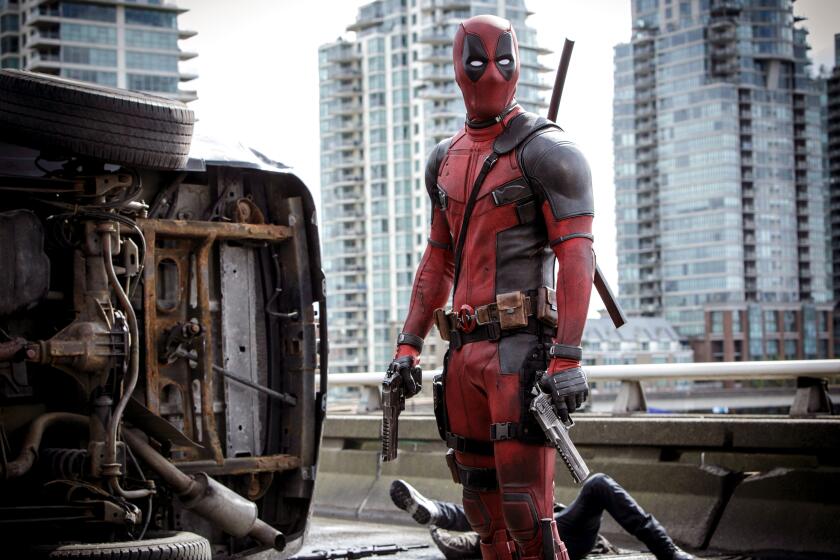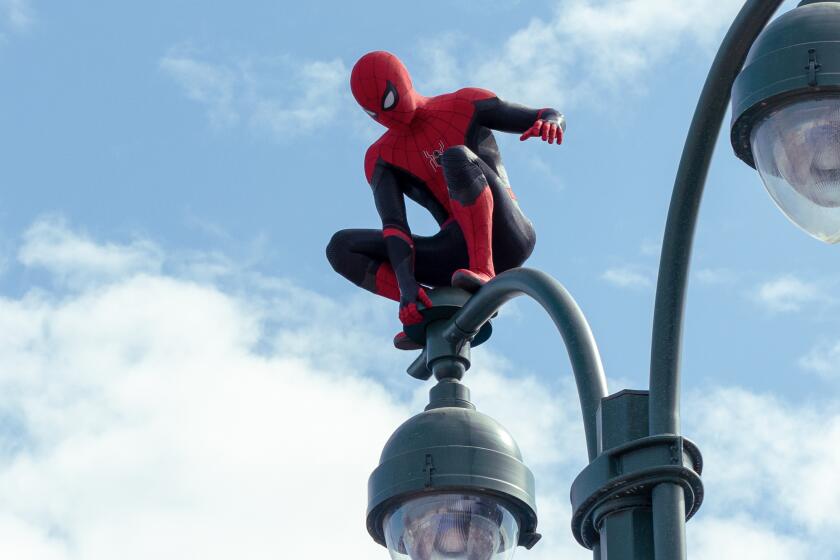Jeff Kinney let ‘Diary of a Wimpy Kid Christmas: Cabin Fever’ have a ‘gooey center’
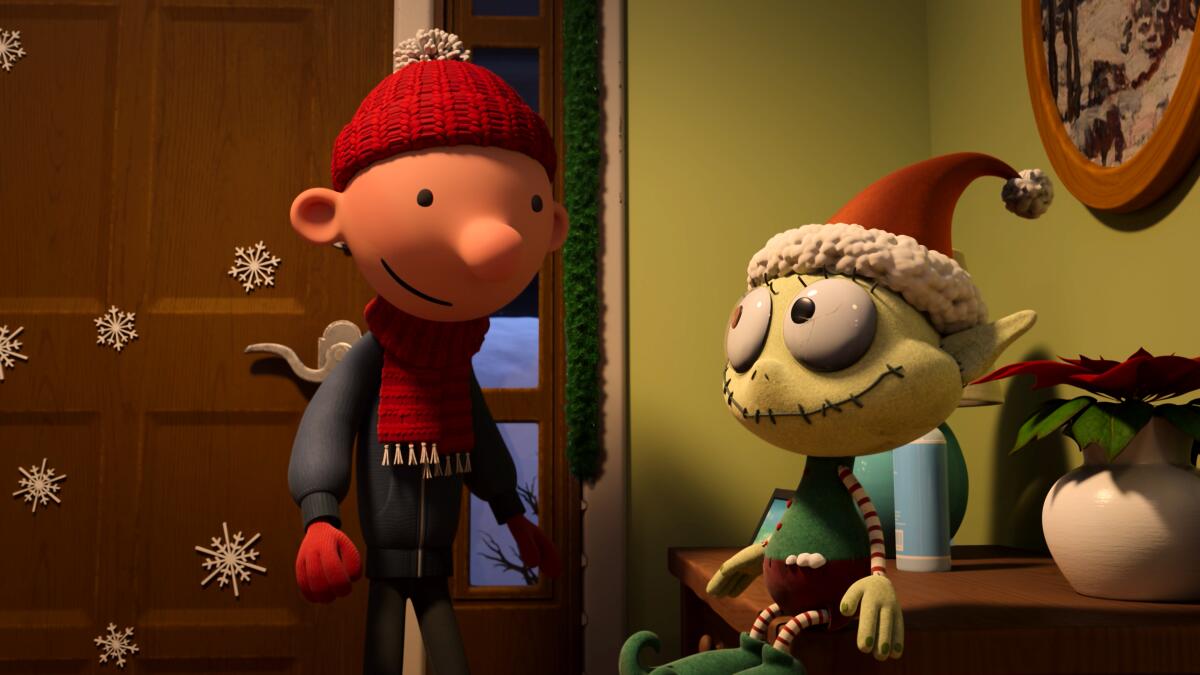
Every school-aged child knows Greg Heffley.
Since 2007, when the first “Diary of a Wimpy Kid” book was released, author Jeff Kinney has told the adventures of middle school student Greg, his brothers Rodrick and Manny, and his best friend, Rowley. The stories were first adapted to the screen with a live-action movie of the same name in 2010. Three more live-action movies followed, and in 2021, the first animated version was produced for Disney+.
“Diary of a Wimpy Kid Christmas: Cabin Fever,” the third Disney+ movie, finds the titular character getting snowed in with his family while trying to stay on Santa’s nice list and get the Christmas present he so desperately wants. It’s based on the series’ sixth book, which was released in 2011. “I’m pinching myself because this work that I did when I was a much younger person is about to come out into the world and I really hope it resonates with people,” Kinney, who is the writer and producer of the movie, says.
Kinney talked about the holiday special, which is now streaming, the process of adapting his work for the screen, working with Disney and what’s next for everybody’s favorite wimpy kid. This conversation has been edited for clarity.
A Christmas special based on this book was first talked about over 10 years ago.
It has been a long journey. Back when we were making the live-action movies, Fox Animation approached me and said, “Hey, would you like to make a holiday special?” I wrote a script that I was really happy with and so many things happened that made that an impossible dream. Eventually the streaming platforms were born and Disney bought Fox and “Diary of a Wimpy Kid” came with it and all these years later we were able to return to really the very first script I ever wrote.
Our TV critic selects a few holiday specials, movies and series to watch this season, including “The Santa Clauses” Season 2, “Doctor Who” specials, “Hannah Waddingham: Home for Christmas” and more.
There are some changes from the book to film. How do you begin to adapt your books and decide what to keep and what to change?
When I adapt one of my books, I don’t even read the book. I just remember the feeling or the jokes or the situation that came with the book. The reason for that is because over time I’ve learned how to put a movie together. It wasn’t until my ninth or 10th book that I really started to have an understanding of how you tell a story cinematically. Now what I do is I take what I’ve learned about moviemaking and then map my ideas onto that. I don’t even remember what’s changed about the story in some ways. I do know what I’ve kept was that Greg gets in trouble during the holidays when he’s trying to be good and he’s got this elf in the home, a Santa Scout, and he keeps a watchful eye over Greg so he sort of serves as Greg’s conscience.
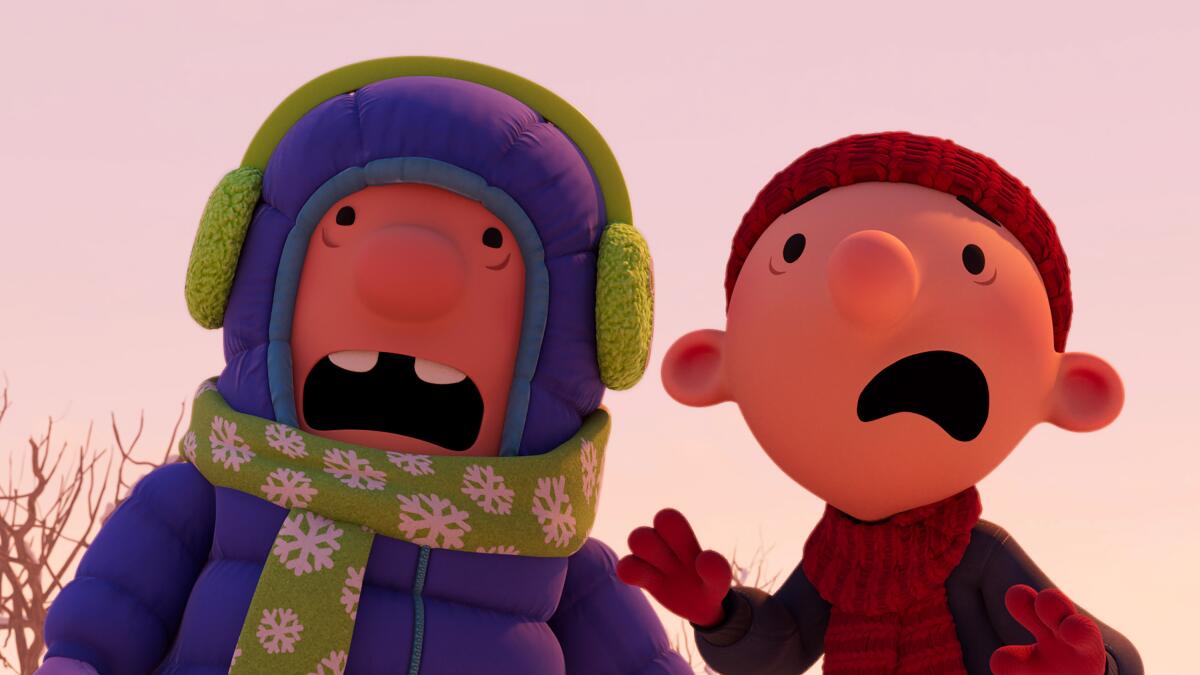
What’s the difference for you in writing a screenplay versus writing a book?
It took me a long time to become a screenwriter and, in fact, I had a number of failed forays into screenwriting until I struck gold with the first Disney+ movie. It is a different skill set and I think a lot of novelists go into moviemaking thinking they can just write a screenplay because it feels pretty easy to do. But the language of it and the structure, especially of screenplay writing is really, really different from novel writing.
With the screenwriting software, you can almost write at the speed of thought. You really can just fly through that dialogue whereas if I’m writing a “Diary of a Wimpy Kid” book, it’s really heavy and technical and sometimes I’ll get stuck on a page for hours or even days. What I especially love about screenwriting is the power that you have in creating worlds with words.
You’ve had your work adapted as both live-action films and animated ones. Do you have a preference?
Every medium brings something really special with it and what was especially special about the live-action films were the people I got to know. The two kids who played Greg and Rowley [Zachary Gordon and Robert Capron], we all kind of experienced this together because they were starring in a movie for the first time and I was experiencing being on set for the first time and I made these deep and long lasting relationships. And, in fact, I’m still really good friends with those kids. You can’t really replicate that in the animated world.
And then what I love about the animated films is that I am the writer and I’m one of the producers. It’s a really small team working on this. I really get along well with the producers and the director and that makes it really special when everybody is clicking and everybody has respect for one another’s ideas. That is a super cool thing to experience and not everyone gets to experience that.
This article was originally on a blog post platform and may be missing photos, graphics or links.

As a producer, do you have the opportunity to give feedback and get involved in all aspects of the production?
I do get to give feedback on all levels. What I’ve really enjoyed working with Disney, the people at the tippy top of the company read every script. You kind of can’t believe it that they are paying attention to draft five of the third animated kids movie but they do. They never let anything go, they never say, “Hey that’s good enough.” I’ve had a really good experience with a lot of push and pull that feels really good. Everyone is striving for the best outcome. When you’ve done it that way, you’ve sort of wrung out the sponge and made the best movie you can make.
The “Wimpy Kid” books are aimed at the tween demographic. Why did you choose to have your main character in this age group and to tell middle school-based stories?
It’s really interesting to write up to childhood’s end. Greg is right there at the edge of childhood and that’s a fun place to write. Wimpy isn’t just a physical designation, it’s a state of powerlessness in a way. I think that kids at a certain age realize they don’t have a lot of control or agency. Greg, throughout this movie, is wishing to get a gift. He doesn’t have any money. The only thing he can control is how good he is and even that is determined by somebody else. So all of this points to this feeling that kids have that they become sort of aware that they aren’t making the big decisions in their own lives.
You just came out with your 18th “Wimpy Kid” book. Are you already working on your next? How many more books do you think there will be?
Now, of course, my sights are set on 20 because I’m close and I don’t know what it looks like after that. Cartoon characters tend to have a longer lifespan than other types of characters.
I’m giving myself permission to get to at least 20 and maybe beyond that because when I stop writing it will sort of leave a hole in some people’s lives. If Greg’s stories stop, I’m not sure what that means exactly.
The movie ends with Greg putting someone else’s needs above his own. In addition to being entertained, do you hope young viewers learn something from it?
In my books, I really try not to be moralistic or didactic. I try not to lean into messages too much because kids really can sniff that out. However, if you are telling a Christmas story, you really can’t get away with not having a gooey center. Throughout the movie Greg is acting in his self-interests. Of course the inverse of that is for him to be selfless. For me, it was a little bit of a leap because I’ve never really done that. I leaned into it a little bit and gave myself permission to write that kind of ending for Greg because it felt like the right time to do it. It was fun to have him make a sacrifice for the good of somebody else.
It's a date
Get our L.A. Goes Out newsletter, with the week's best events, to help you explore and experience our city.
You may occasionally receive promotional content from the Los Angeles Times.

